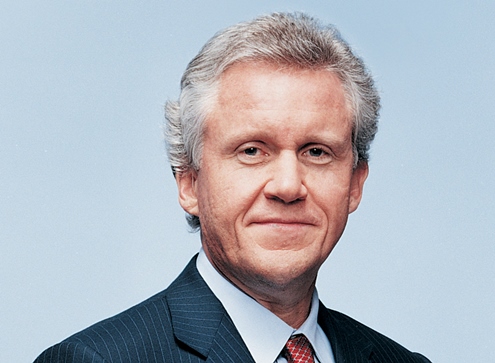The extent of General Electric Co.’s (NYSE: GE) failure as a conglomerate as measured by its share value over the past decade is unmistakable. GE’s shares have fallen 17% over the 10 years, while the S&P 500 has risen 72%. The trend bodes poorly for the results of GE’s $16.9 billion takeover of the energy assets of Alstom. GE has already fumbled most of the chances it has had to improve its fortunes during the past 10 years.
The Alstom deal still requires some approvals, but they appear to be pro forma. Besieged GE CEO Jeffrey Immelt took the opportunity of Alstom’s board approval of the deal to describe his plans:
We will now move to the next phase of the Alstom alliance. We look forward to working with the Alstom team to make a globally competitive power and grid enterprise. We also look forward to working with the French government, employees and shareholders of Alstom. As we have said, this is good for France, GE and Alstom. For GE, the overall economics of the deal remain intact. This transaction remains accretive in year one.
His comments assume that no portion of the deal, particularly integration and the search for synergy, is botched. Wall Street signaled its lack of enthusiasm for the transaction. The conglomerate’s shares have underperformed the S&P 500 over the past month. GE, investors must reason, does not have the ability to turn the deal into a significant success.
The main problem that GE has had, despite constant restructuring, shows up in its most recent quarterly earnings. Revenue dropped from $34.9 billion in the first quarter of 2013 to $34.2 billion. Net earnings attributable to the company dropped from $3.5 billion to $3.0 billion. Immelt’s comments about the quarter were odd, particularly because the numbers were dismal:
We had strong results in the first quarter in most of our markets, including Power & Water, Aviation, Oil & Gas, and GE Capital. The environment was generally positive, and we executed on our operational priorities with strong organic growth, margin enhancement, and solid cash generation.
ALSO READ: America’s Worst Companies to Work For
The results are worse when measured over the past 10 years. According to Morningstar, GE’s net income from continuing operations over the past five years has been much worse than the results of the previous five-year period.
Absent good earnings, GE has tried to market itself as a tower of innovation. Its “GE Works” campaign trumpets the conglomerate’s advances across all of its major divisions. In the process, GE has garnered substantial expertise in multimedia and social media communications. The skills have not yielded enough to impress investors.
After a decade of serial restructuring and M&A, GE remains a collection of divisions that have been a patchwork of success and failure. And failure has held the upper hand.
ALSO READ: Companies With the Best (and Worst) Reputations
In 20 Years, I Haven’t Seen A Cash Back Card This Good
After two decades of reviewing financial products I haven’t seen anything like this. Credit card companies are at war, handing out free rewards and benefits to win the best customers.
A good cash back card can be worth thousands of dollars a year in free money, not to mention other perks like travel, insurance, and access to fancy lounges.
Our top pick today pays up to 5% cash back, a $200 bonus on top, and $0 annual fee. Click here to apply before they stop offering rewards this generous.
Flywheel Publishing has partnered with CardRatings for our coverage of credit card products. Flywheel Publishing and CardRatings may receive a commission from card issuers.
Thank you for reading! Have some feedback for us?
Contact the 24/7 Wall St. editorial team.





